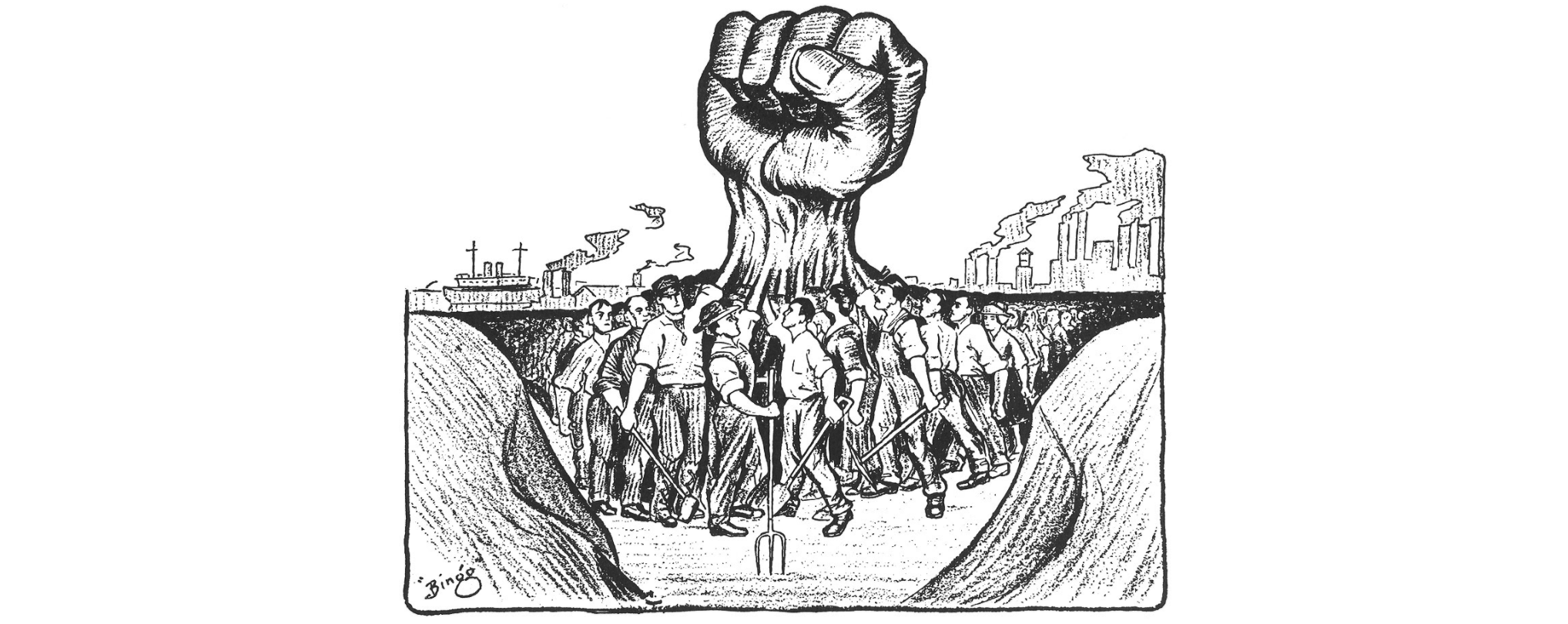The week my kid’s school closed and my partner was laid off from work, I wrote a letter to a friend. He was working with an Indigenous mutual aid collective responding to the pandemic. I knew it could be a long time before he returned to his home address, so I wrote my letter to someone in the future. What is it like in your time, I asked, many months from where I am. Is there health, justice, peace and abundance? Has the land been given back? Are the prisoners free? Absurd, maybe. Impossible. But why do we have imaginations if not to be unruly, vast, demanding? Especially now, when paradigms are being upended, when the future is in every way uncertain, I want to think big.
I began to identify as an anarchist nearly 20 years ago, after a demonstration where I realized that the people cooking the food, doing the dishes, and administering first-aid were mostly anarchists. Rather than a rigid political doctrine, I understand anarchism as an ethical stance focused on making justice and caring for each other without hierarchy, without asking permission from power-brokers, and with whatever tools we have available. I call on these ethics daily.
When I sift through coronavirus news, I remain skeptical of those in authority but respectful of the hard-earned knowledge of epidemiologists. When I act in good faith with my close contacts, I’m drawing on traditions of queer/feminist consensus process and directly democratic decision making. When I agree with a public health measure but deplore the way it’s enforced, I’m reaching for a world where mutual accountability will make authoritarian solutions obsolete.
This is a vision of freedom that doesn’t fetishize the individual, but instead is based on relationships and responsibilities, a web of care that grows.As the pandemic becomes a political pawn, disaster is equated with opportunity. There’s something sordid in this equation. A tragedy doubles as a chance to win votes. In contrast is the ethic of practical collective care and mutual aid. Street medics become nurses in Covid units. Demonstrators are once again masked up, this time to safely distribute food and hand sanitizer.
This is a vision of freedom that doesn’t fetishize the individual, but instead is based on relationships and responsibilities, a web of care that grows. Covid-19 show us, more than ever, how interconnected we are. As Cindy Milstein writes on the Mutual Aid Disaster Relief website, we can build on, rather than fear that fact.
We all deserve to be loved, respected and known by the people who care for us. You don’t need to be an expert, let alone an anarchist to check on friends, donate your stimulus check, sew masks, join a rent strike, talk to your neighbor instead of calling the police on them, or establish trust with the people you live and work with.
I want to think big, yes, but I also want to think small. I think of my kids hugging their grandparents, the food stamps office making life less miserable for my immune-compromised sister-in-law, an incarcerated friend recovering from Covid, my elderly neighbor singing in her rural church. Our wildest dreams are rooted in everyday relationships.
In my letter, I asked my friend the big questions, the ones any good time traveler would ask. I asked about revolution. I also wrote: today the asparagus came back. We planted potatoes. The kids are riding bikes. And you, I asked, you way over there in the future. What did you see today? Are you well? Please tell me about the ones you love.
__________________________________________________
WHAT COMES NEXT: LIFE BEYOND PANDEMIC
Noam Chomsky on the history of the left and its response to crisis
Bill McKibben on what the coronavirus pandemic means for the climate crisis
Karen Washington on a renewed movement to grow food in cities
Ari Berman on how to treat voting as a public health issue
Ai-jen Poo on creating policies that protect care workers
Casey Schwartz on relearning to pay attention
Elizabeth Catte on mutual aid as a form of resistance to power
Julian Noisecat on how progressive messaging can adapt to the pandemic
Andrew Keen on employing media and technology to protect truth
__________________________________________________


